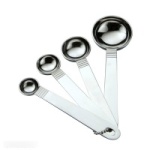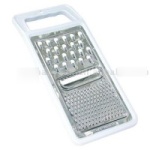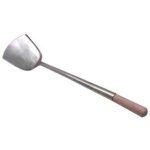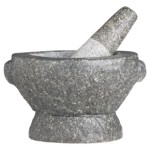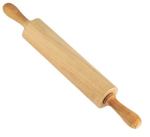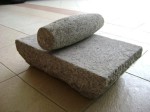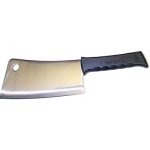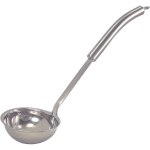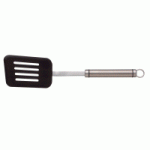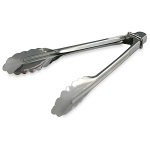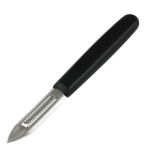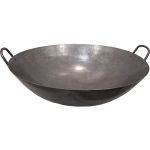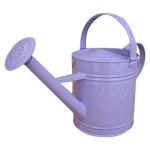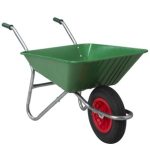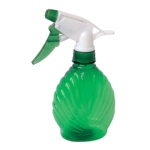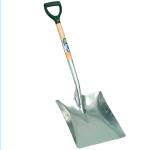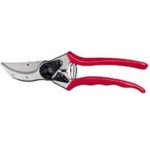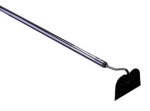Monthly Archives: October 2009
Punctuation Marks
In any spoken language, punctuation marks are so discreetly used that students (and even adults) are not able to use them correctly. Punctuation helps organise sentences so that we know when there’s a stop, a pause, an emotion or an inquiry. Knowing how to punctuate correctly is critical to avoid unwanted misinterpretations.
Observe these two sentences. The same words are used; the only difference is the punctuation used, and its position in the sentence.
- A woman, without her man, is nothing.
- A woman: without her, man is nothing.
Sentence #1 shows how important the role of a man is in a woman’s life. On the other hand, Sentence #2 indicates that a woman is important in a man’s life. As you can see, it’s the opposite of Sentence #1. Neither sentence is gender-biased, so which belief do you subscribe to? 🙂
See how different sentences mean just by changing the position (and the type) of the punctuation mark? In spoken English, you’ve to ensure that when you say something, you need to stop and pause at the right time, or else you’ll get into trouble. Therefore, for both example sentences, you should say like this:
- A woman, [pause] without her man, [pause] is nothing.
- A woman: [stop] without her, [pause] man is nothing.
Here’s another example. Compare all three sentences. Can you tell the difference? 😀
- The man eats shoots and leaves.
- The man eats, shoots and leaves.
- The man eats shoots, and leaves.
Have fun and hope to hear from you.
For You and Me
What’s one of the most problematic word in English? It is “I”, the pronoun. By itself, the pronoun is not a problem, but when used with the conjunction “and“, the problem occurs. Which of the following is correct?
- you and I, OR
you and me
Both are correct!! The only difference is where they are positioned in a sentence. However, to see the difference, you need to know whether the pronoun is in the subject position or the object position in that sentence.
Note:
A “subject” is a noun(s) or a pronoun(s) that appears before a verb.
An “object” is a pronoun(s) that comes after a verb.
Examples:
- Jack and I (subject) went (verb) up the hill.
- Tom met (verb) Jack and me (object) on the hill.
- Tom is waiting for (prep.) Jack and me (object) on the hill.
- Jill climbed the hill with (prep.) Jack and me (object).
Sentences #1 and #2 are obvious. In Sentence #3, you see the preposition “for” before the pronoun. The grammar rule states that for any preposition objects, use the pronoun “me” in the sentence.
Remember Michael Jackson’s environment song, “Heal the World“? Here’s part of the lyrics (the chorus) to illustrate the use of preposition objects for pronouns:
… Heal The World
Make It A Better Place
For You And (For) Me
And The Entire Human Race
There Are People Dying
If You Care Enough
For The Living
Make A Better Place
For You And (For) Me …
Take note that I’ve put the preposition “for” in parenthesis to indicate that it is optional especially in the written language.
Things in the Kitchen
I believe you’ve been in a situation where you wanted something in the kitchen, but when you asked for it, all you could say was: “Please give me that… that thing [pointing to the object].”
Here are some of the objects that are commonly found in kitchens but not commonly asked for in English 🙂
Body Language
We use body language all the time. In fact, body language is universal. No matter what language you speak, the body language doesn’t change. Whether you’re happy in Mandarin, Tamil, Japanese, Thai or English, you smile and anyone who speaks these languages understands you. That’s the beauty of body language. It conveys a universal message without having to speak. Check out this video and have fun with body language.
Gardening Tools
We have been looking at complicated issues related to the learning of English. Today’s blog is back to basics: Gardening tools. I personally believe that we should not forget the “roots” for those who are so new to the English vocabulary. Therefore, this blog – and hopefully a few others – would cater to those who need a refresher course or those who are new.
The pictures above show common gardening tools that you see in homes. Look around, and you’ll see at least a few of them in your house. Though appear to be too fundamental, some people do not know the names of tools that they use daily.
Prefix and suffix
Prefixes and suffixes are little groups of words that are added to a root word to give those words new meanings. A prefix is placed in front of a word, while a suffix is placed at the back.
The tables below show what prefixes mean and how they’re used in a word. Take note that there are many suffixes and prefixes, and the list that you see below provides just a few common ones:
|
Prefixes |
Meaning |
Examples |
|
anti- |
against |
anti-ageing, anti-social |
|
de- |
down, away |
degrade, derail |
|
dis- |
apart, not |
disconnect, dislike |
|
ex- |
former |
ex-teacher, ex-girlfriend |
|
pre- |
before |
pre-war, pre-order |
|
post- |
after |
post-war, post-dated |
|
re- |
again |
reclaim, remake |
|
un- |
not |
unnatural, unwanted |
|
semi- |
half |
semi-finals, semi-detached |
|
Suffixes |
Meaning |
Examples |
|
-able |
possible, capable |
separable, reliable |
|
-al |
related to |
political, economical |
|
-less |
without |
wireless, heartless |
|
-ful |
quality |
helpful, wonderful |
Take note:
Some words are tricky; they appear to have prefixes or suffixes, but they’re actually whole words!
Examples:
- return ( = give back)
- demise ( = die)
- hardly ( = very seldom)
- display ( = show)
Gerund
A gerund is a special noun. It is a verb that has been transformed into a noun by adding the “-ing” suffix.
Using gerunds in a sentence:
(a) as a Subject
- Swimming is my favourite past time.
- I find that reading and writing are difficult language skills to master.
(b) as a Complement
- My favourite past time is swimming.
- The most difficult skills to learn are reading and writing.
(c) as an Object
- Mary loves drinking hot chocolate with her boyfriend.
- My students dislike watching romantic movies.
(d) with articles and adjectives
- The (art.) actual (adj.) making of the movie will be shown on TV.
- The (art.) strange (adj.) writing on the wall is a mystery.
So, a gerund is a verbot that deceptively transforms into a nounbot to confuse our fellow humans. If you haven’t been watching “Transformers“, you obviously wouldn’t understand. 😀
What's in a name?
Do names mean anything to us? Judging by the way job titles are named – or shall I say, renamed – nowadays, it’s evident that giving appropriate names to match the job really matters.
I guess people are more conscious about their jobs and the positions which they hold whether it’s an executive or a non-executive position. Furthermore, as time passes, their job titles need a boost too to keep up with the times.
Let’s take a look at the Job Title Evolution:
- housewife – domestic engineer
- janitor – floor engineer
- garbage collector – sanitary worker
- postman – mail carrier (esp. in U.S.)
- general clerk – administrative officer (esp. in Malaysia)
- doctor – medical consultant
What else is in store? Well, here are my own versions of what we might be applying for in the future:
- teacher – education consultant
- lecturer – tertiary consultant
- tour guide – travel consultant
- soldier – military personnel
- professor – academic scholar
- police officer – crime buster
- news reader – information provider
- pilot – aircraft navigator
- taxi driver – passenger consultant
- construction worker – construction architects
Is there anything else that you’d like to add to this endless list? 🙂
be, been, being
“To be, or not to be” – Shakespeare said in his play, Hamlet, around 1600.
The words be, been and being belong to the same family but are used differently. They’re like brothers and sisters; they’re in the same family but each does a different job.
(a) Using “be”
“Be” is used to compliment auxiliary verbs like can, will and must.
Examples:
- Suhaimi will be at home by 5:00 p.m. today.
- You must be very tired after a long day.
- I’ve an old computer that can still be used (by anyone).
The word “be” in all three examples has no specific meaning. It just exists because it compliments can, will and must. Therefore, the following sentences are wrong.
- Suhaimi will at home by 5:00 p.m. today. (X)
- You must very tired after a long day. (X)
- I’ve an old computer that can still used. (X), but
I’ve an old computer that I can still use. (√) – not “used“
Take note: If you see an action verb after the auxiliary verb, then you cannot use “be“.
- Suhaimi will come home by 5:oo p.m. today.
- You must rest after a long day.
- I’ve an old computer that can still function well.
(b) Using “been”
“Been” is used to compliment auxiliary verbs: has, have and had.
Examples:
- John has been (waiting) here for over an hour.
- The children have been taught (by someone) to respect others.
- If I had been busy, I wouldn’t bother coming here.
The word “been” in both examples also has no specific meaning.
(b) Using “being“
“Being” can be used to replace “to be“. It normally comes after the verbs: is, are, was and were.
Examples:
- You are being helpful.
- The road was being blocked (by someone), so we can’t get through.
- Who is being blamed for this mistake?
- Was I being rude to you just now?
